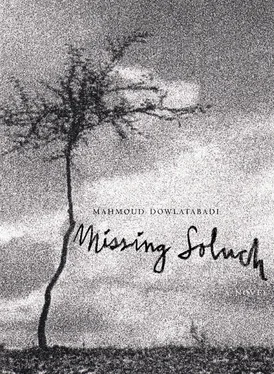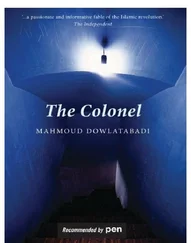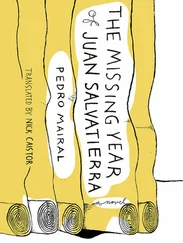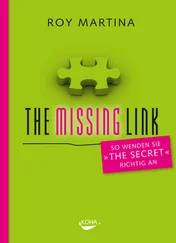“Take my walking stick!”
“I’m taking it, Papa! Give me … give me …”
“Okay! Now help me from the edge of this wall. This night’s so dark. God forbid I fall into a pit!”
“Yes, Papa. Okay!”
“Tonight, the night’s like a ghost that has washed its face with tar!”
“Yes, Papa, dear. Okay! I’ll take you. Where should I go?”
“Zabihollah’s house. The new lords of the village should be gathered there!”
“Yes, Papa, dear. Zabihollah Khan’s house. Zabihollah Khan’s house.”
Moslem was always with his father. Hajj Salem was also stuck to his fool of a son like a worn-out shirt. Each morning, when Hajj Salem would put on his worn, long robes, take his twisted old walking stick, and leave their crypt of a home, Moslem was like his shadow. The father and son would set out in Zaminej’s alleys, chewing on a bit of bread — if there was one to be had — all the while bantering and bickering. Everyone’s ears were drawn to this banter, because it was part of the fabric of the lives of all who heard it. And in the end, the bickering was always resolved peacefully.
When two people have no choice but to live with one another, a special kind of conflict binds them to one another. And after this, under no circumstances can they live without this conflict, whether they acknowledge it or not. It’s as if a thread has been tied around their hands, their shoulders, their legs, and their necks, and each end of the thread is in the other’s hands. They become each other’s binding. In this inevitable conflict, if they draw too near, they will both choke, and if they draw apart, fear will bring them back together. If they both don’t let go of the thread together, the conflict inevitably continues.
For Hajj Salem and his son, even walking together was fraught with conflict. The thread that bound them together, wove them to each other, was the conflict itself. In eating, sleeping, walking, and falling, they were perpetually at odds. Moslem always wanted to be seen by others as walking shoulder to shoulder with his father, their shadows falling beside one another. But Hajj Salem never wanted this. Moslem would try to stick himself to his father’s shoulder, and Hajj Salem would use his walking stick to deliver a blow to his son’s legs, driving him away from his side. Moslem would grab his legs with his large hands and furrow his brows, pursing his lips. His father, speaking in a contrived voice — that voice that he chose to speak in all the time — would order his son, “Two steps back, you fool!”
Moslem, trying to protest for the thousandth time, would say, “D … d … d …!”
And for the thousandth time, he would take two steps back, falling into step behind his father.
“So now you’ve done your deed, you son of a whore! You finally delivered your blow! You delivered your poison, you beast! Ah … my back!”
Just shy of Zabihollah’s house, Hajj Salem had slipped and fallen into a ditch beside the wall. His walking stick was in Moslem’s hand, and the old man was flailing around at the bottom of the ditch. Moslem extended the stick toward his father and was saying, “Papa … Papa … take it! Grab the end. Grab the end of the stick. Grab it.”
“I can’t see, you fool! I can’t see! Are you blind that you can’t see that I can’t see?”
“Take it! It’s here. The stick … stick … here … here …”
“Ah … Oh … You son of a whore … Why are you mixing me up with that stick? Don’t hit me! Don’t hit me, my son!”
Moslem began laughing out loud. The old man was at the bottom of the ditch grabbing at nothing and turning around in circles, swearing at the top of his voice. Moslem would tap the top of his father’s head with the stick, occasionally grazing his beard and neck with it, laughing as he did. Hajj Salem was at the end of his wits, and began pleading, “Don’t torture me, my son! Don’t torture me! God won’t forgive your sins. Don’t torture me. I pray to you. I’ll breathe my last breath in this ditch. Don’t torture me. You’ll become an orphan, Moslem! Ah … now you’ve lost your father, Moslem. You’re fatherless!”
Hajj Salem sat at the edge of the wall on the edge of the ditch and covered his face with his hands, breaking into loud sobs. Moslem also sat at the top of the ditch and began crying along with his father, hitting his head with his hands. As the walking stick had fallen into the middle of the ditch, Abbas conjured the courage to jump down, handed the stick to the old man, and helped him climb out and shake the dirt off his clothes.
Hajj Salem said, “God did not forget me. An angel! God sent me a Gabriel! Gabriel! Who are you, boy? Who are you at this hour of this dark night? Who are you? And that foolish son of a bitch, that torturing degenerate, where did he go?”
“He’s there sir; he’s over there.”
“I can’t see him! I’ve been stuck with the night blindness, oh no! I’m night blind! Aren’t you the son of Mergan?”
“Yes, sir.”
“I recognize you from your voice. From your voice. May you have a perfect life. God sent you to rescue me, I know it. You … you’re … Gabriel. But that son of a whore, where is he? Moslem!”
Moslem came forward crying and pleading.
“Don’t punish me, Papa. Don’t punish me. I beg you on your life, don’t punish me.”
“I won’t punish you. Stop it. I just don’t want you to embarrass me where we’re going. Just stop it!”
“Okay … Okay … I’ll stop it. Yes.”
Abbas took the end of the stick and handed it to Moslem, who then set off in the direction of Zabihollah’s house.
The sound of a cow’s cry rose from the stables of Zabihollah’s house. Moslem stopped his father at the edge of the wall. Hajj Salem ordered his son, “Knock on the door!”
Moslem pounded the door with his fist, and a moment later Zahra, Zabihollah’s sister, opened the door.
“My daughter, I’ve come to see Zabihollah Khan.”
“He’s not here!”
“Where is he, child?”
“At the house of Mirza Hassan, Agha Malak’s son-in-law.”
Hajj Salem spoke to Moslem, “So get going then! Didn’t you hear?”
Moslem pulled on the stick to lead Hajj Salem to Mirza Hassan’s house.
Abbas remained at the door of Zabihollah’s house. Zahra was about to shut the door when Abbas ran up to her.
“I heard your cow crying!”
“She’s birthing.”
“Do you want me to watch over her?”
“No! She’ll do fine herself.”
“Do you want me to go and call Zabihollah?”
The door shut and Abbas was left alone in the alley. He had no choice but to head to Mirza Hassan’s house. So he went.
They hadn’t let Moslem and Hajj Salem into the house. The father and son were sitting quietly by the wall. Abbas sat beside Hajj Salem. The yard was quiet and two beams of light shining from the kitchen and the sitting room struggled to break through the dark. It was clear that the wife and mother of Mirza Hassan were busy in the kitchen. And Abbas could see that Hajj Salem was grasping Moslem’s hand as he breathed in the air, smelling something.
The men — whose voices could be heard — were sitting around a hearth in the middle of the sitting room and discussing something. Abbas could easily tell who was speaking from their voices.
“I know, I know. It’s clearer than day to me that the woman’s gone and hid the copper. Wherever it is, she’s really hid them. I know this witch’s tricks already!”
“You should be hunting lions, Salar Abdullah! Why drive yourself mad for these bits of copper?”
“She’s showing me up, Mirza! It’s hard to take. It hurts less to have a loss of thousand tomans in a business deal than to misplace a single toman yourself. If only I had grabbed Soluch’s collar right then on that day and hadn’t shown him mercy … Ah! I’ll be sure never to do another favor for ants like these people.”
Читать дальше












